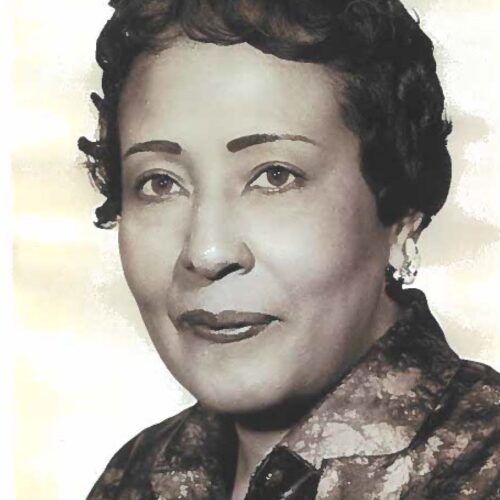Biography
Early Life
Ruby Hurley, the civil rights mother/queen, trained a generation of youth who became nationwide leaders and founded the Southeast Region of the National Association for the Advancement of Colored People (NAACP).
Ruby Ruffin grew up with civic activist foster parents and public school teachers Percy and Emma Roy. Her upbringing allowed her to observe Mary McLeod Bethune engage in social justice work.
Following her role model, Hurley became a church woman activist as an adult. She combined NAACP and Methodist service in New York, Birmingham, and Atlanta. Though she married twice, Hurley spent most of her life as a single woman.
Budding Activism Career
Hurley began NAACP work in 1939. She helped the Citizens Committee organize a Washington Mall concert after Marian Anderson was rebuffed by the Daughters of the American Revolution. As a result, the Washington NAACP branch was re-established. Hurley then moved to New York in 1943 to become NAACP National Youth Secretary.
Within three years, youth and college chapters grew from 97 with 4,100 members to 380 with over 22,000 members. Under Hurley, NAACP youth advocated for Black WWII soldiers, participated in international youth conferences, and became leaders in the National Students’ Association.
In 1951 Hurley became the founding director of the NAACP’s Southeast Region. She moved first to Birmingham, then fled to Atlanta with the NAACP membership lists once Alabama made NAACP operations in the state illegal.
Civil Rights & Religious Leadership
Hurley strengthened existing NAACP work by developing new branches and state conferences. She created regular training and regional conventions and oversaw school integration and voting rights.
She also investigated anti-Black violence and initiated NAACP work to moderate white organizations. Harry T. Moore (murdered December 25, 1951), Vernon Jordan, Medgar Evers (murdered June 12, 1963), and I. DeQuincey Newman were members of her early regional staff.
Hurley used Protestant Christianity to encourage Black and white memberships and translated the NAACP’s agenda for southern white Christian adoption. Both groups benefited from Hurley’s programs, such as the annual Religious Leaders Day at the Georgia State Capitol.
Hurley’s contributions are mentioned in the Civil Rights Movement. However, the focus on men leaders means there is little public knowledge about the significance of Hurley’s leadership.
Hurley’s Southeast Regional Work created access to civil rights and social opportunities for African Americans and many others.

